The Oklahoma Legislature adjourned sine die on Friday, May 26. As a result, all rule amendments proposed and approved by the Oklahoma Ethics Commission became law. Effective immediately the lobbyist registration renewal deadline has been extended from December 31 to […]
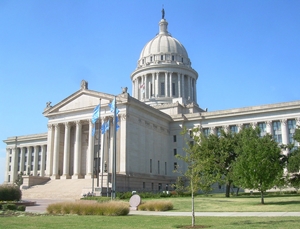 The Oklahoma Legislature adjourned sine die on Friday, May 26. As a result, all rule amendments proposed and approved by the Oklahoma Ethics Commission became law.
The Oklahoma Legislature adjourned sine die on Friday, May 26. As a result, all rule amendments proposed and approved by the Oklahoma Ethics Commission became law.
Effective immediately the lobbyist registration renewal deadline has been extended from December 31 to January 15. Changes to lobbyist reporting include moving all executive lobbyist report due dates as well as the January and July legislative lobbyist reports due dates to the 15th of the month. All other legislative reports remain due on the 5th of the month. Campaign finance rule amendments include new requirements for committees formed for the purpose of influencing a state question. Such committees must include the number of the state question as part of the name of the committee. They must also file reports any time an expenditure of $5,000 or more is made to advocate the passage or defeat of a state question. The reports are due at the same time as those for independent expenditures and electioneering communications.
Effective January 1, 2018, the limit for lobbyist or lobbyist principal gifts given in recognition of infrequently occurring occasions of personal significance will drop from $200 to $100 in any calendar year. Such gifts will be required to be given and received contemporaneously with the occasion or at times when such gifts are traditionally given. Infrequently occurring occasions of personal significance will not include annual events such as birthdays or anniversaries; rather, they will refer only to major life events. Lastly, a lobbyist providing a meal to a state officer or employee will be required to be present for the meal. Similarly, a lobbyist providing a gift including attendance at an event will be required to attend the event with the recipient of the gift.
A measure to increase penalties for violations of Pennsylvania lobbying laws made it out of committee this week. House Bill 1175 increases the amount a lobbyist may be fined from $2,000 to $4,000, and establishes a graduating scale of daily […]
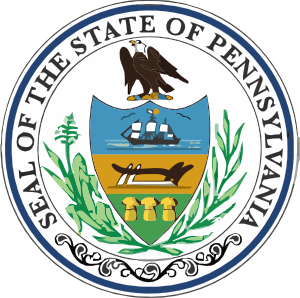 A measure to increase penalties for violations of Pennsylvania lobbying laws made it out of committee this week.
A measure to increase penalties for violations of Pennsylvania lobbying laws made it out of committee this week.
House Bill 1175 increases the amount a lobbyist may be fined from $2,000 to $4,000, and establishes a graduating scale of daily fines for failure to register or report.
If passed, the per day fine will be $50 for the first 10 days, $100 for days 11 through 20, and $200 for each day thereafter.
The bill now moves to the full House for consideration.
February 20, 2017 •
Hawaii Lawmakers Considering New Lobbyist Registration Threshold
Hawaii legislators are currently considering legislation aimed at closing an existing loophole in lobbyist registration and reporting rules. Currently, a lobbyist is one who spends more than five hours in a month or $750 in a reporting period attempting to […]
 Hawaii legislators are currently considering legislation aimed at closing an existing loophole in lobbyist registration and reporting rules. Currently, a lobbyist is one who spends more than five hours in a month or $750 in a reporting period attempting to influence a ballot issue or legislative or administrative action.
Hawaii legislators are currently considering legislation aimed at closing an existing loophole in lobbyist registration and reporting rules. Currently, a lobbyist is one who spends more than five hours in a month or $750 in a reporting period attempting to influence a ballot issue or legislative or administrative action.
The law is not clear, however, with regards to the activities and time to be included when determining if an individual meets the lobbyist threshold. As a result, it has been utilized as a way to avoid public disclosure.
House Bill 290 would close the loophole by amending the registration threshold. A lobbyist would include anyone paid or who expects to be paid more than $1,000 in a year for lobbying, anyone who spends five hours in one month or 10 hours in a calendar year on lobbying, or anyone who lobbies on three or more measures during a legislative session.
The bill is just one part of a legislative package supported by the Hawaii State Ethics Commission. The Commission is also supporting bills to increase fines for ethics and lobbying violations, to amend various definitions related to lobbying, to amend special session lobbyist reporting requirements, and to allow lobbyist employers to file notices of termination.
September 22, 2016 •
First Reports Under California’s New Lobbyist Reporting Requirements Due October 31
The first reports under the Fair Political Practices Commission’s new amended reporting requirements for “other payments to influence legislative or administrative action” are due October 31. The third quarter report covers the period of July 1 to September 30, 2016. […]
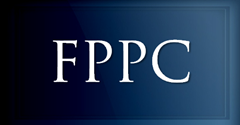 The first reports under the Fair Political Practices Commission’s new amended reporting requirements for “other payments to influence legislative or administrative action” are due October 31.
The first reports under the Fair Political Practices Commission’s new amended reporting requirements for “other payments to influence legislative or administrative action” are due October 31.
The third quarter report covers the period of July 1 to September 30, 2016.
Lobbyist employers and persons spending $5,000 or more to influence legislative or administrative action will need to itemize “other payments to influence legislative or administrative action” using the new Form 640.
April 20, 2016 •
Michigan Bill Introduced to Increase Lobbyist Reporting Requirements
Michigan State Rep. Gary Glenn recently introduced legislation to increase lobbyist reporting requirements. House Bill 5535 would require lobbyists and lobbyist agents to file reports on a quarterly basis. Currently, reports are only required to be filed on a semi-annual […]
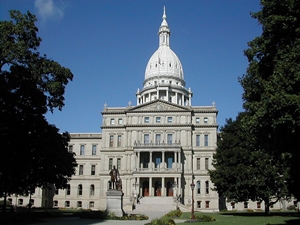 Michigan State Rep. Gary Glenn recently introduced legislation to increase lobbyist reporting requirements.
Michigan State Rep. Gary Glenn recently introduced legislation to increase lobbyist reporting requirements.
House Bill 5535 would require lobbyists and lobbyist agents to file reports on a quarterly basis. Currently, reports are only required to be filed on a semi-annual basis.
The bill is now in the Committee on Oversight and Ethics and has yet to pass either house.
Photo of the Michigan State Capitol by Brian Charles Watson on Wikimedia Commons.
April 6, 2016 •
Kaua`i County Requires Lobbyists to Register and Report
Kaua`i County lobbyists will soon be required to register with the county clerk within five days of engaging in lobbying. The mayor signed a new lobbying ordinance on March 30, after council unanimously adopted the measure the week before. The […]
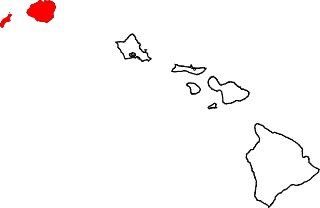 Kaua`i County lobbyists will soon be required to register with the county clerk within five days of engaging in lobbying. The mayor signed a new lobbying ordinance on March 30, after council unanimously adopted the measure the week before. The ordinance defines a lobbyist as one who is compensated for more than five hours in any month to communicate with a state or county officer or employee with the purpose of influencing any legislative or administrative action.
Kaua`i County lobbyists will soon be required to register with the county clerk within five days of engaging in lobbying. The mayor signed a new lobbying ordinance on March 30, after council unanimously adopted the measure the week before. The ordinance defines a lobbyist as one who is compensated for more than five hours in any month to communicate with a state or county officer or employee with the purpose of influencing any legislative or administrative action.
Spending more than $750 on lobbying during any reporting period will require registration even if the five-hour threshold is not met. Lobbyists, lobbyist employers, and individuals spending $750 or more on lobbying must file an annual statement of expenditures on or before January 31, covering the previous calendar year.
A violation of the lobbying ordinance may result in an administrative fine for each violation, as well as suspension or revocation of lobbyist registration. The lobbying ordinance is effective July 28, 2016.
January 13, 2016 •
San Francisco Ethics Commission Meets to Begin Implementing Proposition C
The San Francisco Ethics Commission will meet January 13, 2016, to discuss the implementation of Proposition C, the November 2015 ballot measure imposing registration and reporting requirements on expenditure lobbyists. The measure takes effect February 1, 2016. The Ethics Commission […]
 The San Francisco Ethics Commission will meet January 13, 2016, to discuss the implementation of Proposition C, the November 2015 ballot measure imposing registration and reporting requirements on expenditure lobbyists. The measure takes effect February 1, 2016.
The San Francisco Ethics Commission will meet January 13, 2016, to discuss the implementation of Proposition C, the November 2015 ballot measure imposing registration and reporting requirements on expenditure lobbyists. The measure takes effect February 1, 2016.
The Ethics Commission welcomes public input on the promulgation of regulations related to the registration threshold, how to account for staff time spent on expenditure lobbying, registration fee exemptions for nonprofit organizations, and other related topics. The meeting is at noon in City Hall.
October 23, 2015 •
New Jersey ELEC Proposes Changes to Lobbying Registration and Reporting Obligations
The New Jersey Election Law Enforcement Commission has approved the publication of a proposal amending lobbyist registration and reporting obligations. The proposal would require governmental affairs agents and represented entities to file all lobbying forms and reports electronically. A registration […]
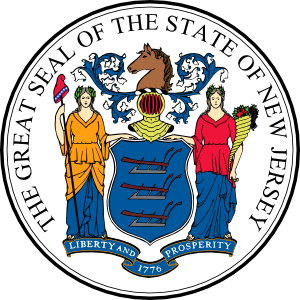 The New Jersey Election Law Enforcement Commission has approved the publication of a proposal amending lobbyist registration and reporting obligations. The proposal would require governmental affairs agents and represented entities to file all lobbying forms and reports electronically. A registration number and PIN supplied by the Commission would act as an electronic signature and acknowledgement for forms and reports submitted electronically.
The New Jersey Election Law Enforcement Commission has approved the publication of a proposal amending lobbyist registration and reporting obligations. The proposal would require governmental affairs agents and represented entities to file all lobbying forms and reports electronically. A registration number and PIN supplied by the Commission would act as an electronic signature and acknowledgement for forms and reports submitted electronically.
Furthermore, when a group of individuals, each registered as a governmental affairs agent, together represents more than one entity, the group will be able to file a notice of representation for a represented entity on behalf of the group. Notice of termination filed by such a group would need to indicate whether termination applies the entire group or to a specific governmental affairs agent.
Additionally, the proposal would require any changes to the notice of representation to be made by electronically filing an amendment. Lastly, the proposal would also require an individual registering as a governmental affairs agent for the first time to personally appear in Commission offices to submit the annual fee and required photographs.
The proposed amendments were published in the New Jersey Register on October 19, 2015, and will be the subject of a public hearing on December 15. If approved following the public hearing, the amendments are expected to go into effect in early February.
February 3, 2015 •
Changes Scheduled for Delaware’s Online Lobbyist Filing System
The electronic filing system of the Public Integrity Commission, the Public Integrity Reporting System, is being moved. As a result of the change, filers will be required to update their passwords after the system is moved. The system will be […]
 The electronic filing system of the Public Integrity Commission, the Public Integrity Reporting System, is being moved. As a result of the change, filers will be required to update their passwords after the system is moved.
The electronic filing system of the Public Integrity Commission, the Public Integrity Reporting System, is being moved. As a result of the change, filers will be required to update their passwords after the system is moved.
The system will be down for the transfer from 11:00 p.m. on February 7 to 6:00 a.m. on February 9.
The first time a filer logs in after the system is moved, he or she will be prompted to create a new password. The commission has not released the web domain of the new system but is scheduled to do so in the near future.
December 15, 2014 •
Vermont Launching Online System for Lobbyist Filings
The Office of the Secretary State announced lobbying registration and reporting in Vermont is going digital. Beginning with the 2015-2016 biennium, registration and reporting will be accomplished solely through a new online management system. Lobbyist disclosure reports due on January […]
 The Office of the Secretary State announced lobbying registration and reporting in Vermont is going digital. Beginning with the 2015-2016 biennium, registration and reporting will be accomplished solely through a new online management system.
The Office of the Secretary State announced lobbying registration and reporting in Vermont is going digital. Beginning with the 2015-2016 biennium, registration and reporting will be accomplished solely through a new online management system.
Lobbyist disclosure reports due on January 25, 2015, covering the period from July 1 to December 31, 2014, will be the last paper filings accepted.
The online system will be available for use no later than January 1, 2015.
January 7, 2014 •
Rhode Island Lobbyists Online Registration and Reporting System Updated
Today, the LobbyTracker system used for Rhode Island lobbyist and employer registrations and reports has been updated at the state’s Secretary of State’s online lobbyist information portal. Among the updates is the allowance for authorized users. An authorized user is […]
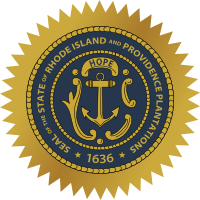 Today, the LobbyTracker system used for Rhode Island lobbyist and employer registrations and reports has been updated at the state’s Secretary of State’s online lobbyist information portal.
Today, the LobbyTracker system used for Rhode Island lobbyist and employer registrations and reports has been updated at the state’s Secretary of State’s online lobbyist information portal.
Among the updates is the allowance for authorized users. An authorized user is someone who is given permission by the primary contact to file reports and register lobbyists on his or her behalf. This person may also serve as the authorized user for more than one entity, firm, or lobbyist.
Additionally, email addresses will now be used for login names. Only one email address is allowed per lobbyist, firm, or entity with the exception of one email address for either a firm and lobbyist, or an entity and lobbyist. An entity and firm may not share an email, nor may several lobbyists share one email address.
All 2013 reports will continue to be filed in the previous LobbyTracker system.
December 6, 2013 •
Ask the Experts – Outside Organizations and Estimating Your Lobbying Expenditures
Q. Our company, a federal registrant, is a member of numerous outside organizations. We join many of these organizations for reasons other than their lobbying/government relations activities. Even so, some of the organizations allocate a percentage of dues toward lobbying […]
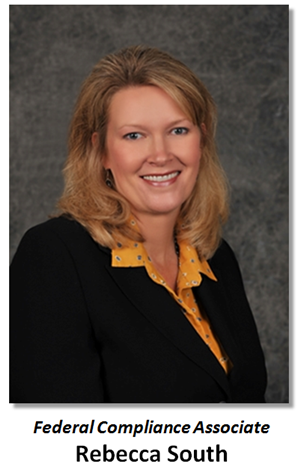 Q. Our company, a federal registrant, is a member of numerous outside organizations. We join many of these organizations for reasons other than their lobbying/government relations activities. Even so, some of the organizations allocate a percentage of dues toward lobbying activities. If we are not actively engaged in supporting the organization’s lobbying efforts, do we still need to include the lobbying allocation in our good faith estimate of lobbying expenditures.
Q. Our company, a federal registrant, is a member of numerous outside organizations. We join many of these organizations for reasons other than their lobbying/government relations activities. Even so, some of the organizations allocate a percentage of dues toward lobbying activities. If we are not actively engaged in supporting the organization’s lobbying efforts, do we still need to include the lobbying allocation in our good faith estimate of lobbying expenditures.
A. Yes. The disclosure requirement in this regard is not dependent on the rationale behind why a registrant joins any given membership organization. The reporting mandate requires every registrant to track and ascertain what portion, if any, of all dues it pays is used for lobbying activities. The registrant is then required to include those allocations in their total lobbying expenses reported.
You can directly submit questions for this feature, and we will select those most appropriate and answer them here. Send your questions to: marketing@stateandfed.com.
(We are always available to answer questions from clients that are specific to your needs, and we encourage you to continue to call or e-mail us with questions about your particular company or organization. As always, we will confidentially and directly provide answers or information you need.) Our replies to your questions are not legal advice. Instead, these replies represent our analysis of laws, rules, and regulations.
November 21, 2013 •
Proposed Changes to Oklahoma Ethics Laws Prove Highly Controversial
State Rep. Mike Reynolds is criticizing officials at the state Ethics Commission for offering proposed changes to lobbyist reporting and registration, conflict of interest, and financial disclosure rules. According to Reynolds, “the Ethics Commission seems to be declaring open season […]
 State Rep. Mike Reynolds is criticizing officials at the state Ethics Commission for offering proposed changes to lobbyist reporting and registration, conflict of interest, and financial disclosure rules.
State Rep. Mike Reynolds is criticizing officials at the state Ethics Commission for offering proposed changes to lobbyist reporting and registration, conflict of interest, and financial disclosure rules.
According to Reynolds, “the Ethics Commission seems to be declaring open season for lobbyists on elected officials” as the proposed changes “. . . have the potential of increasing lobbyists’ gifts to lawmakers by hundreds of thousands of dollars each year.”
Opponents of the proposed changes argue expansion of the current guidelines will increase undue influence on elected officials and reduce the efficacy of the commission in and of itself.
November 28, 2012 •
San Diego Ethics Commission Proposes Changes to Lobbyist Fundraising Reporting
Options to be discussed at December’s meeting
 The Ethics Commission is considering ways in which an individual’s role in fundraising may be more accurately disclosed on the lobbyist quarterly disclosure reports. Currently lobbying firms and organization lobbyists must disclose the total amount of all contributions attributable to a reportable individual who has any degree of fundraising responsibility.
The Ethics Commission is considering ways in which an individual’s role in fundraising may be more accurately disclosed on the lobbyist quarterly disclosure reports. Currently lobbying firms and organization lobbyists must disclose the total amount of all contributions attributable to a reportable individual who has any degree of fundraising responsibility.
For individuals with limited involvement on a host committee, the total amount raised at a particular event may not be reflective of the individual’s limited fundraising efforts. In response, the commission’s staff has prepared three alternative options.
One option would simply allow notation on the report when the individual is not solely responsible for the amount raised. The other two options would amend the lobbying ordinance to remove the dollar amount disclosure requirement for those “assisting a host committee,” or to require reporting of only the amount an individual knows or has reason to know where collected as a result of his or her solicitations.
Discussions on this matter will be held at the commission’s December 13, 2012 meeting at 5:00 p.m. in Room 202 of Council Committee. Feedback may also be sent by email to ethicscommission@sandiego.gov.
Seal of San Diegocourtesy of Zscout370 on Wikipedia.
State and Federal Communications, Inc. provides research and consulting services for government relations professionals on lobbying laws, procurement lobbying laws, political contribution laws in the United States and Canada. Learn more by visiting stateandfed.com.


